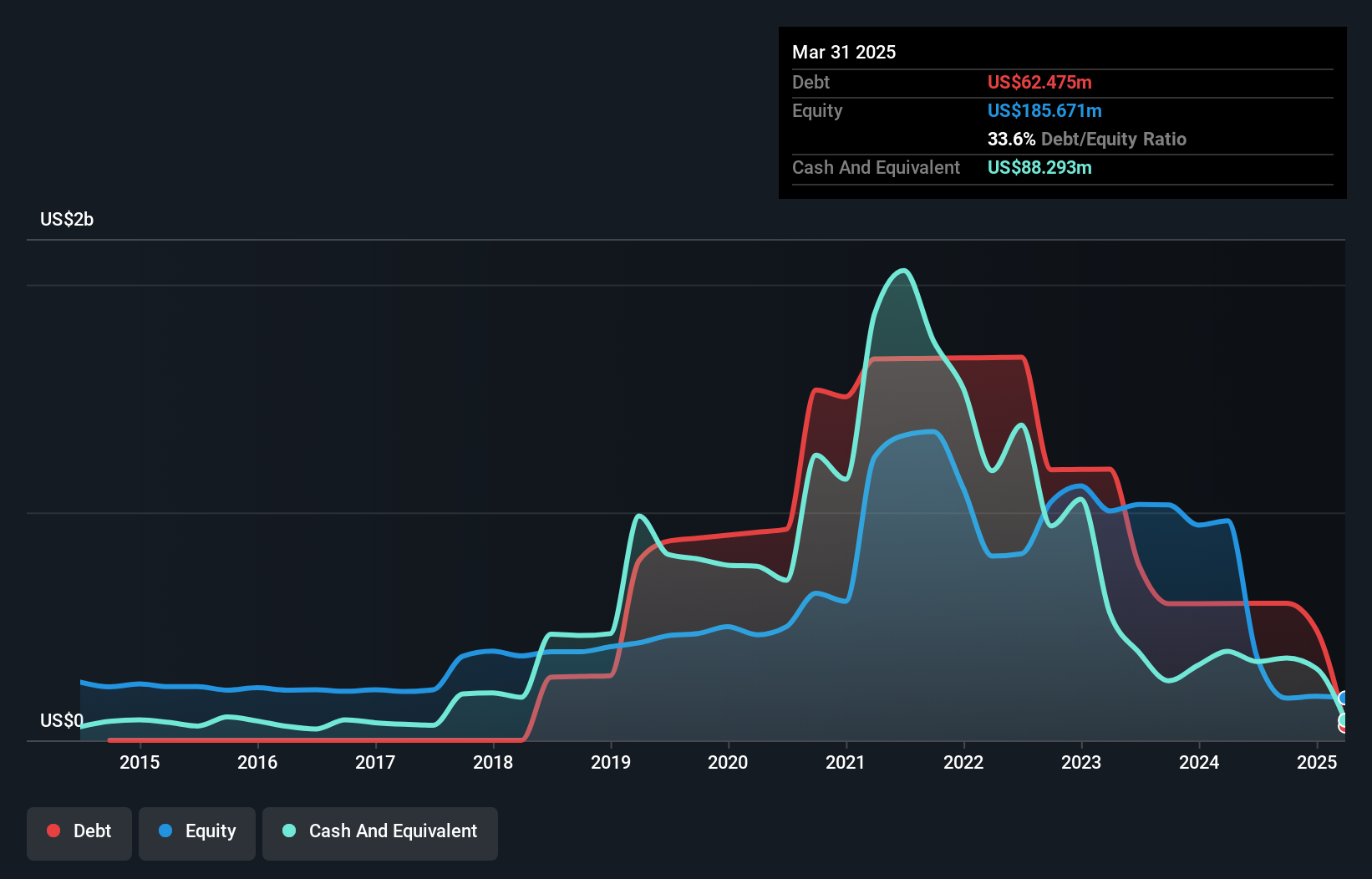
Howard Marks put it nicely when he said that, rather than worrying about share price volatility, 'The possibility of permanent loss is the risk I worry about... and every practical investor I know worries about.' When we think about how risky a company is, we always like to look at its use of debt, since debt overload can lead to ruin. As with many other companies Chegg, Inc. (NYSE:CHGG) makes use of debt. But the more important question is: how much risk is that debt creating?
What Risk Does Debt Bring?
Debt assists a business until the business has trouble paying it off, either with new capital or with free cash flow. Ultimately, if the company can't fulfill its legal obligations to repay debt, shareholders could walk away with nothing. However, a more common (but still painful) scenario is that it has to raise new equity capital at a low price, thus permanently diluting shareholders. Of course, the upside of debt is that it often represents cheap capital, especially when it replaces dilution in a company with the ability to reinvest at high rates of return. The first step when considering a company's debt levels is to consider its cash and debt together.
How Much Debt Does Chegg Carry?
As you can see below, Chegg had US$62.5m of debt at March 2025, down from US$600.4m a year prior. But on the other hand it also has US$88.3m in cash, leading to a US$25.8m net cash position.

A Look At Chegg's Liabilities
According to the last reported balance sheet, Chegg had liabilities of US$171.0m due within 12 months, and liabilities of US$82.1m due beyond 12 months. On the other hand, it had cash of US$88.3m and US$28.5m worth of receivables due within a year. So its liabilities outweigh the sum of its cash and (near-term) receivables by US$136.3m.
This deficit is considerable relative to its market capitalization of US$143.9m, so it does suggest shareholders should keep an eye on Chegg's use of debt. This suggests shareholders would be heavily diluted if the company needed to shore up its balance sheet in a hurry. Despite its noteworthy liabilities, Chegg boasts net cash, so it's fair to say it does not have a heavy debt load! When analysing debt levels, the balance sheet is the obvious place to start. But ultimately the future profitability of the business will decide if Chegg can strengthen its balance sheet over time. So if you're focused on the future you can check out this free report showing analyst profit forecasts.
See our latest analysis for Chegg
In the last year Chegg had a loss before interest and tax, and actually shrunk its revenue by 20%, to US$565m. We would much prefer see growth.
So How Risky Is Chegg?
While Chegg lost money on an earnings before interest and tax (EBIT) level, it actually generated positive free cash flow US$41m. So taking that on face value, and considering the net cash situation, we don't think that the stock is too risky in the near term. With revenue growth uninspiring, we'd really need to see some positive EBIT before mustering much enthusiasm for this business. The balance sheet is clearly the area to focus on when you are analysing debt. However, not all investment risk resides within the balance sheet - far from it. Case in point: We've spotted 2 warning signs for Chegg you should be aware of.
When all is said and done, sometimes its easier to focus on companies that don't even need debt. Readers can access a list of growth stocks with zero net debt 100% free, right now.
Have feedback on this article? Concerned about the content? Get in touch with us directly. Alternatively, email editorial-team (at) simplywallst.com.
This article by Simply Wall St is general in nature. We provide commentary based on historical data and analyst forecasts only using an unbiased methodology and our articles are not intended to be financial advice. It does not constitute a recommendation to buy or sell any stock, and does not take account of your objectives, or your financial situation. We aim to bring you long-term focused analysis driven by fundamental data. Note that our analysis may not factor in the latest price-sensitive company announcements or qualitative material. Simply Wall St has no position in any stocks mentioned.